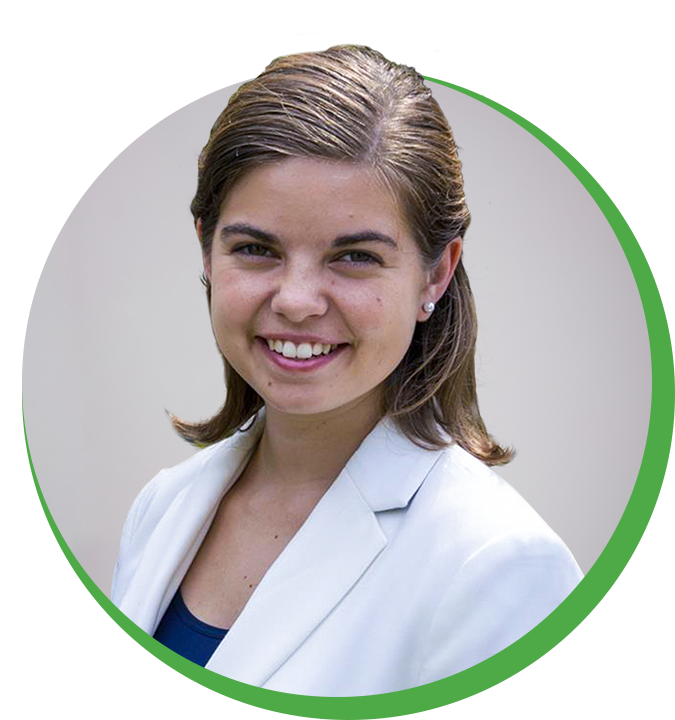Expecting Little Miracles: How One Scholarship Program Encourages Hard Work, Self-Sufficiency, and Service

Avery West
Director of Community Initiatives
Read more from Avery
“What can we do so you don’t need us anymore?” This is the question Missy Hanks asks anyone who applies to the Expecting Little Miracles (ELM) scholarship program.
The ELM foundation in Huntsville, Alabama, exists “to make intentional investments that create self-sufficiency, accountability, and a desire to serve.” Missy Hanks, the case manager for ELM, explains that they award grants for skills development, whether that be a traditional college degree or specialized job training. The Little Miracles program also assists with childcare, legal, or healthcare barriers that present themselves on the participant’s path to self-sufficiency. Missy works closely with each program participant, serving as an advisor, friend, and listening ear to individuals who may be undergoing significant stress in order to work, continue their education, and in some cases, provide for their children.
ELM focuses heavily on long-term development work rather than meeting immediate needs. They don’t advertise the program widely but instead rely on referrals from clergy, community leaders, or social service staff who have noticed a particular client progressing. Missy explains that those who end up qualifying for the program tend to be in the top 1-2% of a typical poverty-alleviation program demographic. “You not only have to find someone who can be successful, but someone who wants to be successful.”
Referred individuals who qualify for FAFSA fill out an application, write an essay about their history and goals, and interview with Missy. Their applications must then go through the grants committee as well as the board of directors before being accepted.
Before the school year begins, participants work with Missy to clarify their own goals and write a development plan. A typical student development plan features requirements for class attendance, GPA retention, and working 15 hours a week. For a working parent who wants to complete more education, a development plan might include increasing one’s salary, earning a CNA, or even eating dinner as a family four nights a week. Both Missy and the participant sign the document, and it becomes a kind of a contract for their commitment to each other and the program.
The participant then meets with Missy according to their needs. Some students, for example, might call her often with questions about which classes to take and how to set up a checking account. Others, especially ones nearing the end of their education, might only check in once before the end of the semester. Missy spends extra time with those mothers who both work and go to school and meets with them for lunch monthly. ELM even enlists volunteers to write birthday and Christmas cards to each participant. They try to make the program as relational as possible.
Grants are awarded by semester, and ELM helps participants all the way through their schooling, as long as they stay committed to their development plan. A typical student grant is $7,500, while a typical childcare grant is $6,000. Each individual has different needs, and ELM works with them to alleviate some financial burden while still asking for substantial contribution from the participant.
ELM’s intentional application process and intense case management results in their participants overcoming significant odds and transforming their lives.
The ultimate goal for ELM is encouraging self-sufficiency. Missy explains, “That means paying their bills on time, not relying on government assistance, and then turning around to assist others. That’s what success looks like for us.”
Missy tells the story of one woman who joined ELM when she and her son were thrown out on the street by her abusive husband. With the help of Little Miracles, she graduated from college with an RN degree and now works as a dialysis nurse. Her son, who was nine years old when they became homeless, grew up with the love and support of the ELM staff. He eventually received a full scholarship to Amherst College and went on to study medicine. Missy explained that their formal relationship with that family lasted eight years, but they continue to call just to check in to this day.
For those who are interested in beginning their own scholarship programs, Missy encourages leaders to make an intentional investment in just a few candidates. “To truly do development work and not just meet immediate needs, it’s expensive.”
By investing both financially and relationally in a handful of individuals, a program can make a real difference in their lives. And, by encouraging those individuals to turn around and serve, one little miracle for an individual could impact generations.
The ELM Foundation is a member of the True Charity Network. For more information about their program, Network Members can contact them through the directory in the member portal.
Check out several testimonies from those whose lives have been impacted by the ELM Foundation’s Little Miracles program:



